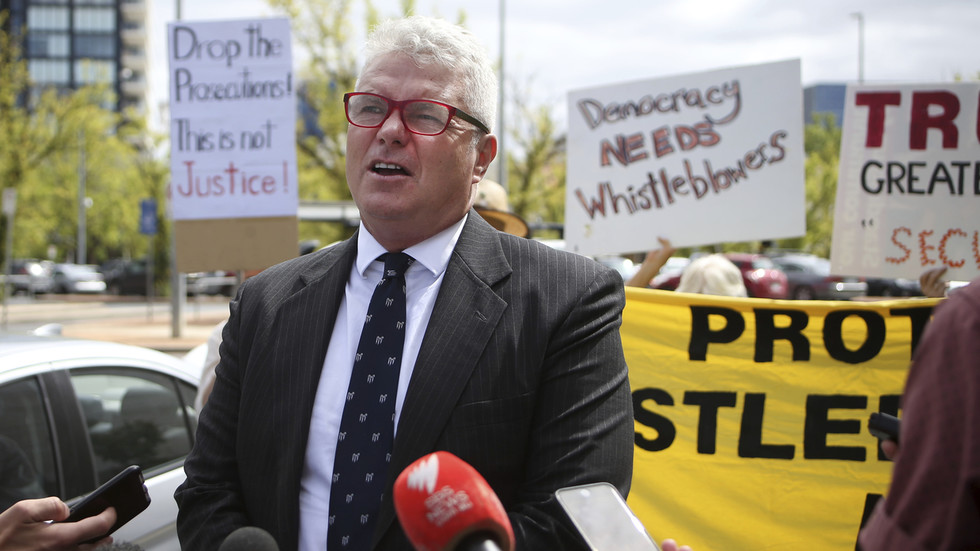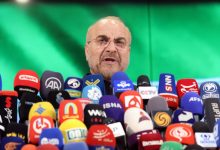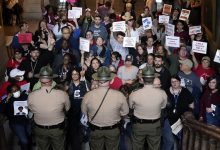
An ex-lawyer who exposed alleged killings by Australian troops in Afghanistan says he’s ready for his case to be heard in court
FILE PHOTO. Defendant David McBride talks to the media before his court appearance in Canberra, Australia. © AP Photo/Rod McGuirk
Former military lawyer David McBride, who revealed alleged war crimes committed by Australian special forces in Afghanistan, will be tried by a jury next year after his attempt to avoid prosecution under the country’s whistleblower laws was thwarted by the government on Thursday.
Back in 2017, McBride shared information with the media about a series of alleged war crimes by Australian troops during their deployment in Afghanistan between 2007 and 2014. He said he went to the ABC broadcaster only after raising the issue internally and with the oversight agencies.
The Brereton inquiry, which stemmed from his leaks, found credible evidence to support the allegations of at least 39 murders of Afghan civilians by Australian special forces. In some cases, junior troops were told by commanders to shoot prisoners “in order to achieve the soldier’s first kill,” the report read.
Thursday’s hearings at the Supreme Court of the Australian Capital Territory in Canberra reportedly lasted for just 15 minutes, instead of the planned four days.
McBride’s legal team were looking to shield their client from prosecution under the Public Interest Disclosure Act, which had been around since 2013. However, they opted to withdraw their motion after the government’s lawyers sought to suppress some of the evidence prepared by the defense under public interest immunity laws, arguing that the release of the data would be detrimental to national security.
Read more
This means that McBride’s trial, which had been previously scheduled for 2023, will go forward. The former military lawyer faces five charges, including unauthorized disclosure of information, theft of commonwealth property and three counts of breaching the Defense Act. He has pleaded not guilty on all counts.
“The government played the national security card to the absolute hilt,” McBride told journalists outside the court, adding that without the evidence of two key experts that was blocked, he had very little chance of success.
“But I did always want to do a trial. I think the issues will only be properly ventilated in a jury trial,” he said.
The whistleblower’s lawyer, Mark Davis, claimed the data in question was “not that controversial.” Some might assume it was “identities of agents or codes,” but it was nothing like that, he insisted. Much more sensitive materials had come before the court previously, Davis said, adding that the judge had the power to proceed with the hearing behind closed doors if necessary.
The use of national security laws by the Australian government is a “devastating blow” for democracy, Kieran Pender, a senior lawyer at the Human Rights Law Center said, calling on the authorities to “end this unjust case.”



